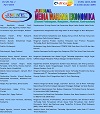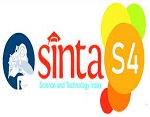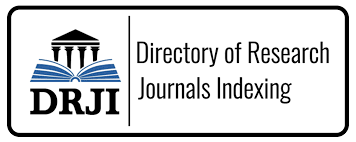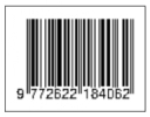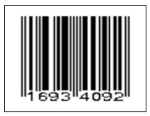Kapabilitas Dinamik, Kompetensi Sumber Daya Manusia, dan Kinerja Inovasi: Studi Empiris dalam Pengembangan Industri Halal di Sumatera Selatan Selama Pandemi Covid-19
DOI:
https://doi.org/10.31851/jmwe.v20i1.11103Keywords:
Kapabilitas Dinamik, Kompetensi Sumber Daya Manusia, Kinerja Inovasi, Industri Halal, Pandemi Covid-19Abstract
ABSTRAK
Salah satu kendala dalam pengembangan industri halal di Indonesia yaitu sumber daya manusia (SDM), di mana masih banyaknya SDM yang belum kompeten dalam pengembangan industri halal, terutama pada pelaku usaha kecil. Mengembangkan SDM unggul menjadi salah satu kunci utama pengembangan industri halal. Pengembangan industri halal di Indonesia harus dilakukan dengan inovatif dan kompetitif. Pelaku usaha industri halal diharapkan memiliki standar kinerja inovasi yang mumpuni agar dapat memanfaatkan momentum masa pasca pandemi Covid-19 sebagai titik kebangkitan industri halal pasca pandemi Covid-19. Untuk mendukung adanya inovasi dan terwujudnya kinerja inovasi bagi pengembangan industri halal di Indonesia, dibutuhkan SDM yang memiliki kompetensi. Pengembangan kompetensi SDM sangat tergantung dengan komitmen dan kapabilitas dinamik dari pelaku industri halal. Dalam persaingan bisnis global khususnya pemulihan pasca pandemi Covid-19, pelaku industri halal selain memerhatikan struktur industri, juga harus melihat perspektif internal dengan menelaah secara seksama sumber daya yang dimilikinya dan bagaimana mengombinasikannya untuk memperoleh kompetensi inti dan keunggulan kompetitif. Penelitian ini bertujuan untuk menganalisis pengaruh kapabilitas dinamik yang terdiri dari adaptive capabilities, absorptive capabilities, dan innovative capabilities secara langsung terhadap kinerja inovasi maupun secara tidak langsung melalui kompetensi sumber daya manusia sebagai variabel mediasi. Grand Theory yang digunakan dalam penelitian ini adalah teori resource-based view. Sampel dalam penelitian ini sebanyak 170 pelaku industri halal skala kecil di Sumatera Selatan. Penelitian ini diolah dengan teknik analisis Structural Equation Modeling. Hasil Penelitian menunjukkan bahwa adaptive capabilities berpengaruh signifikan terhadap kompetensi SDM dan kinerja inovasi. Sedangkan absorptive capabilities berpengaruh signifikan terhadap kompetensi SDM, namun tidak berpengaruh signifikan terhadap kinerja inovasi. Selanjutnya innovative capabilities berpengaruh signifikan terhadap kinerja inovasi, namun tidak berpengaruh signifikan terhadap kompetensi SDM. Kompetensi SDM hanya menjadi variabel intervening antara pengaruh adaptive capabilities dan absorptive capabilities terhadap kinerja inovasi.
Kata Kunci: Kapabilitas Dinamik, Kompetensi Sumber Daya Manusia, Kinerja Inovasi, Industri Halal, Pandemi Covid-19
ABSTRACT
One of the obstacles in the development of the halal industry in Indonesia is human resources (HR), where there are still many HR who are not competent in developing the halal industry, especially small business entrepreneurs. Developing superior human resources is one of the main keys to developing the halal industry. The development of the halal industry in Indonesia must be carried out in an innovative and competitive manner. Halal industry business entrepreneurs are expected to have qualified innovation performance standards so they can take advantage of the post-Covid-19 pandemic momentum as a revival point for the halal industry after the Covid-19 pandemic. To support innovation and realize innovation performance for the development of the halal industry in Indonesia, competent human resources are needed. HR competency development is highly dependent on the commitment and dynamic capabilities of halal industry entrepreneurs. In global business competition, especially in the post-pandemic recovery of Covid-19, apart from paying attention to industry structure, halal industry players must also look at the internal perspective by carefully examining the resources they have and how to combine them to gain core competencies and competitive advantage. This study aims to analyze the effect of dynamic capabilities consisting of adaptive capabilities, absorptive capabilities, and innovative capabilities directly on innovation performance and indirectly through human resource competence as a mediating variable. The grand theory used in this study is the resource based view theory. The sample in this study were 170 small-scale halal industry entrepreneurs in South Sumatra. This research was processed using the Structural Equation Modeling analysis technique. The research results show that adaptive capabilities have a significant effect on HR competence and innovation performance. Meanwhile, absorptive capabilities have a significant effect on HR competence, but do not have a significant effect on innovation performance. Furthermore, innovative capabilities have a significant effect on innovation performance, but do not have a significant effect on HR competence. HR competency is only an intervening variable between the effect of adaptive capabilities and absorptive capabilities on innovation performance.
Keywords : Dynamic Capability, Human Resource Competence, Innovation Performance, Halal Industry, Covid-19 Pandemic
References
Athey, T.R., dan Orth, M.S. (1999). Emerging Competencies Methods for The Future.Human Resource Management.Vol. 38.Hal.215–226.
Cohen, W. M., and Levinthal, D. A. (1989). Innovation and Learning: The Two Faces of R&D. The Economic Journal. 99, 569-596.
Dodgson, M., Gann, D., Salter, A. (2008). The Management of Technological Innovation. Oxford: Oxford University Press.
Ferdinand, A. (2014). Structural Equation Modelling dalam Penelitian Manajemen Edisi 5. Semarang: UNDIP Press.
Hair, J. F., et al. (2010). Multivariate Data Analysis, Seventh Edition. New Jersey: Pearson Prentice Hall.
Hartini, S.. (2012). Peran Inovasi: Pengembangan Kualitas Produk dan Kinerja Bisnis, Jurnal Manajemen dan Kewirausahaan, No.14, Vol. 1, 82-88, :http://doi.org/10.9744/jmk.14.1.83-90
Hurley, R, dan Hult, G.T., (1998), Innovation, Market Orientation and Organizational Learning: An Integration and Empirical Eximination. Journal of Marketing, vol 3, hal 42-54.
Lai, Y.L., Hsu, M.S., Lin, F.J., Chen, Y.M., & Lin, Y. H. (2014). The effects of industricluster knowledge management on innovation performance, Journal of business research, No.67, Vol.5, 734-739, :http://doi.org/10.1016/j.jbusres.2013.11.036
Mcclelland, D. C. (1973). Testing For Competence Rather Than For "Intelligence." American Psychologist, 28, 1-14.
Rahayu, J.S., Syairuddin, B., Pertiwi, S.G. (2015). Perancangan Strategi Untuk Meningkatkan Kinerja Inovasi Pada Klaster Industri Kreatif Batik Laweyan, Prosiding Seminar Nasional Manajemen Teknologi XXII, Surabaya, 24 Januari.
Roscoe, J. T. (1975). Fundamental Research Statistics for Behavioural Science (2nd ed). New York : Holt Rinehart & Winston.
Wang, C. L., and Ahmed, P. K. (2007). Dynamic Capabilities: A Review and Research Agenda. The International Journal of Management Reviews, 9(1), 31-51.
Widiastuti, T., Rusydiana, A. S., Robani, A., Insani, T. D., & Muryani. (2020). Obstacles And Strategies In Developing Halal Industry: Evidence From Indonesia. Humanities & Social Sciences Reviews, 8(4), 398-406.
Downloads
Published
Issue
Section
License
Copyright (c) 2023 Jurnal Media Wahana Ekonomika

This work is licensed under a Creative Commons Attribution-NonCommercial 4.0 International License.
The copyright of the received article shall be assigned to the publisher of the journal licensed under a Creative Commons Attribution-NonCommercial 4.0 International License in line with the license, authors and any users (readers and other researchers) are allowed to share and adapt the material only for non-commercial purposes. In addition, the material must be given appropriate credit, provided with a link to the license, and indicated if changes were made. If authors remix, transform or build upon the material, authors must distribute their contributions under the same license as the original.

